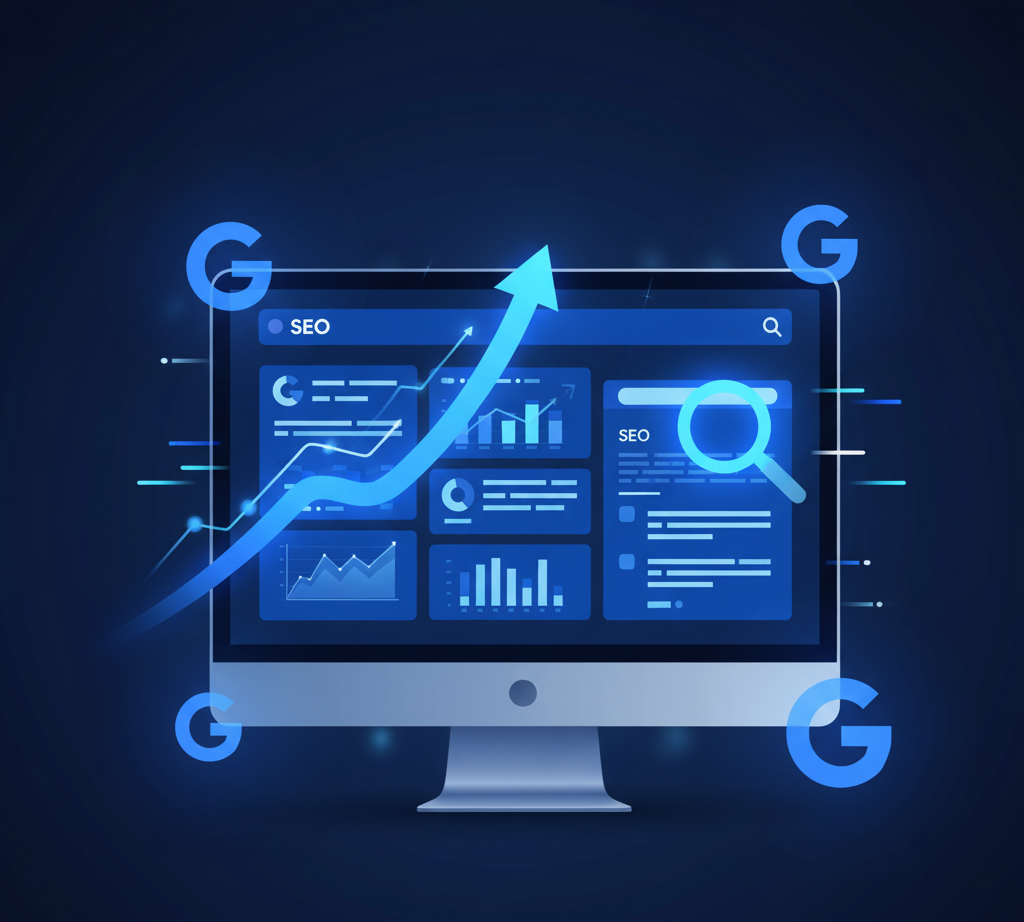In today’s digital world, visibility is everything. Whether you’re running a personal blog, e-commerce store, or corporate website, appearing on the first page of Google can make or break your online success. More than 90% of all search traffic goes to results on the first page, making Google ranking a defining factor in digital growth.
But achieving and maintaining that visibility is no longer as simple as stuffing pages with keywords. Google’s algorithm has evolved to understand intent, quality, and user experience at an unprecedented level. For 2025 and beyond, understanding the latest Google ranking factors is essential for building long-term SEO performance and staying ahead of competitors.
What’s Changed in Google’s Algorithm in 2025?
Every year, Google updates its algorithm to google ranking deliver better, more relevant results. The changes in 2025 reflect Google’s growing emphasis on AI-driven search, user intent, and trustworthy content.
Recent updates integrate AI-powered models that interpret not just keywords but context understanding what users mean rather than what they type. This means old-school SEO tactics like keyword stuffing, low-quality link exchanges, or generic AI-generated text won’t cut it anymore.
Google’s Search Generative Experience (SGE) now uses AI to generate richer, more contextual answers directly in the results. To compete, websites must create original, helpful, and authoritative content that stands out both to users and algorithms.
In 2025, the key to SEO success google ranking lies in aligning your strategy with Google’s AI and prioritising content that delivers real value.
Core Web Vitals: The Foundation of SEO Performance
If there’s one area that continues to dominate SEO conversations, it’s Core Web Vitals the set of metrics Google uses to measure user experience.
The three main Core Web Vitals are
- Largest Contentful Paint (LCP): Measures loading performance. Pages should load within 2.5 seconds.
- First Input Delay (FID): Measures interactivity. Your site should respond quickly when users click or scroll.
- Cumulative Layout Shift (CLS): Measures visual stability. Avoid content that jumps or shifts unexpectedly as the page loads.
In 2025, Google has expanded these metrics with Interaction to Next Paint (INP) a new indicator of responsiveness. A slow or clunky site can directly hurt rankings, regardless of content quality.
Simply put, technical speed and smooth UX are no longer optional they’re the foundation of modern SEO performance.

Does AI Content Still Rank Well?
AI-generated content is everywhere, but its effectiveness depends on how it’s used. Google’s latest stance is clear: AI-assisted content can rank well if it provides genuine value and meets quality standards.
The issue isn’t that content is created with AI it’s whether it’s written for humans first. Google’s ranking system prioritizes pages that demonstrate accuracy, depth, and authenticity.
Marketers using AI tools like ChatGPT, Jasper, or Gemini should focus on combining machine efficiency with human insight. This means editing AI drafts for clarity, verifying facts, and ensuring the tone fits your brand’s audience.
The winning formula? AI for productivity, humans for perspective.
E-E-A-T: Experience, Expertise, Authority, Trustworthiness
E-E-A-T Google’s acronym for Experience, Expertise, Authority, and Trustworthiness remains one of the most critical ranking factors in 2025.
Here’s how it breaks down:
- Experience: Show that your content comes from firsthand knowledge or real-life practice.
- Expertise: Demonstrate a deep understanding of your field with well-researched, accurate content.
- Authority: Earn backlinks and mentions from credible websites in your niche.
- Trustworthiness: Ensure transparency through citations, author bios, and secure (HTTPS) websites.
Google’s algorithm now actively evaluates author credentials and on-page signals that establish credibility. Adding author bios, citing reputable sources, and using verifiable data can significantly improve your rankings.
If your website demonstrates genuine expertise and transparency, Google is far more likely to reward you with visibility.
How Mobile Optimization Impacts Visibility
Mobile-first indexing isn’t new, but in 2025, it’s more influential than ever. Over 70% of global web traffic now comes from mobile devices, and Google ranks based on the mobile version of your website.
Poor mobile performance slow load times, difficult navigation, or intrusive pop-ups can tank your rankings even if your desktop site is flawless.
To optimise for mobile:
- Use responsive design that adapts to all screen sizes.
- Minimize large images and unnecessary scripts.
- Test with Google’s Mobile-Friendly Test and PageSpeed Insights.
Your goal is to make every visitor’s experience seamless, whether they’re on a smartphone, tablet, or laptop.
Backlinks vs. Content Quality What Matters More?
For years, backlinks were considered the holy grail of SEO. While they still matter, content quality now outweighs quantity when it comes to ranking power.
Google’s latest algorithm favors content that genuinely satisfies user intent over pages that simply have a high number of backlinks. That said, backlinks from relevant, authoritative domains remain vital for credibility and authority building.
In 2025, focus on earning links, not just building them. Guest posting, digital PR, and creating shareable resources (like original research or tools) are effective ways to attract organic backlinks.
Remember: great content naturally earns links, while poor content needs to beg for them.
Conclusion
Staying on top of Google’s ever-changing ranking factors requires a blend of technical precision, human creativity, and data-driven insight. In 2025, success means optimizing for both algorithms and audiences, delivering content that’s fast, trustworthy, and deeply useful.
Focus on Core Web Vitals, E-E-A-T principles, user intent, and technical SEO to future-proof your strategy. Embrace AI tools to enhance productivity, but keep your human perspective at the core of every piece of content you publish.
Ultimately, sustainable SEO success isn’t about chasing shortcuts; it’s about building real value that earns Google’s trust over time. Platforms like Wiraa, which connect digital professionals and marketing experts globally, make it easier than ever to build teams that understand and adapt to these evolving SEO dynamics.
Stay informed, stay adaptable, and you’ll not only keep up with Google’s changes, you’ll stay ahead of them.




